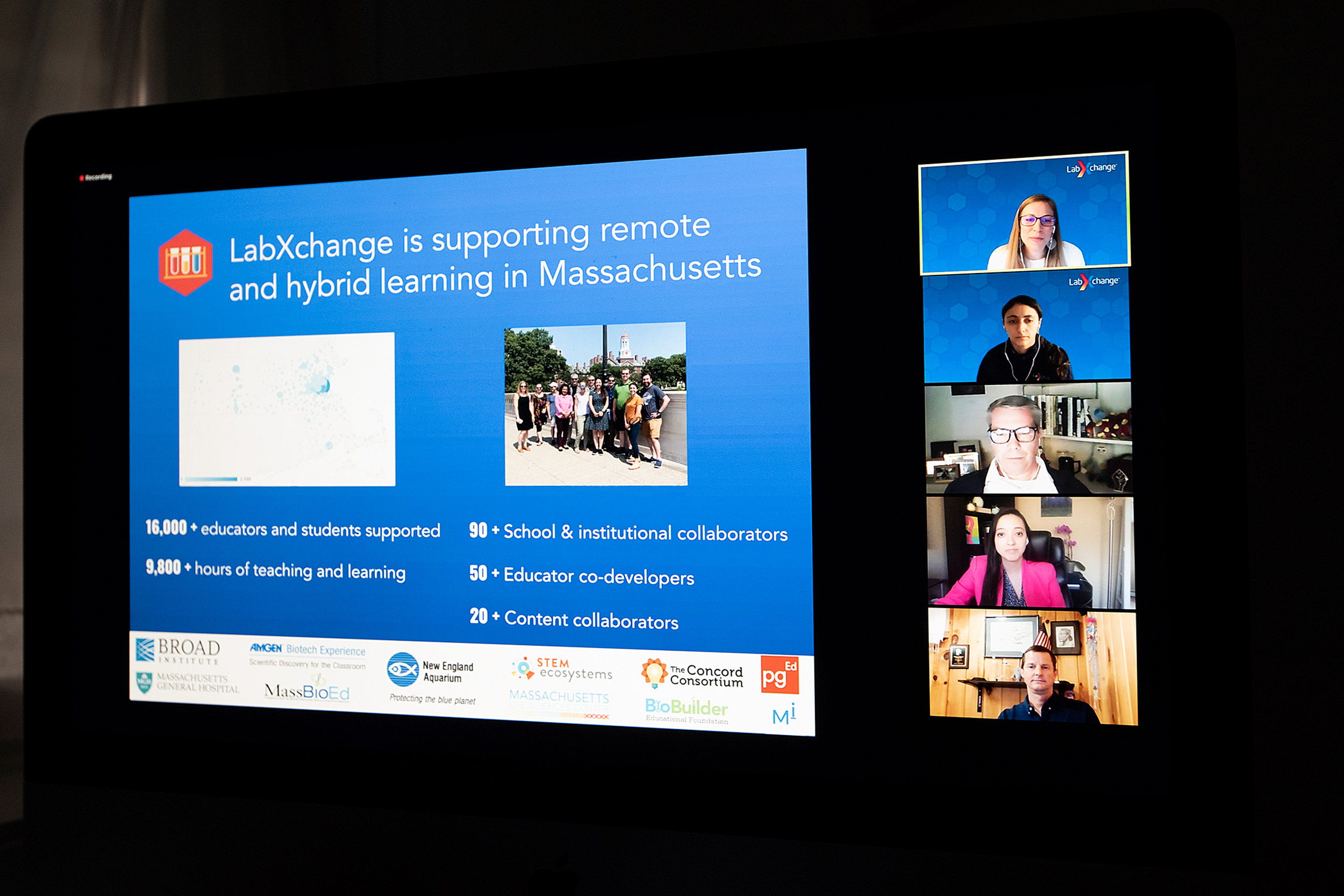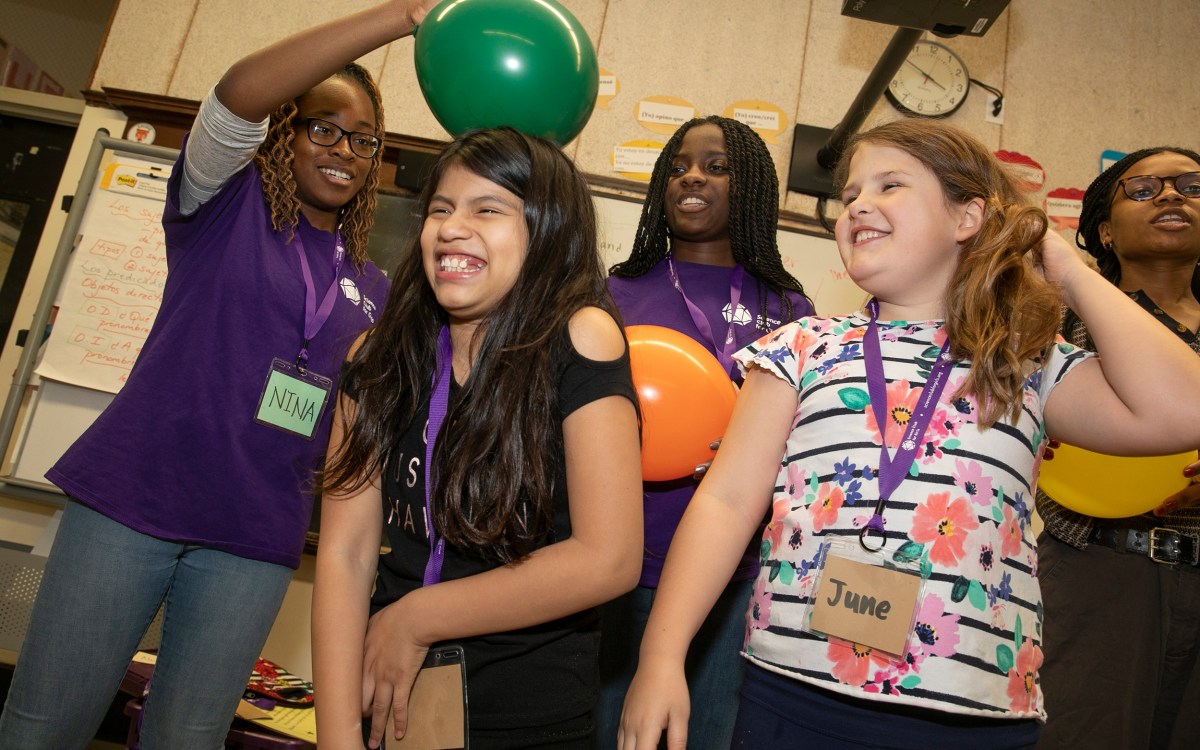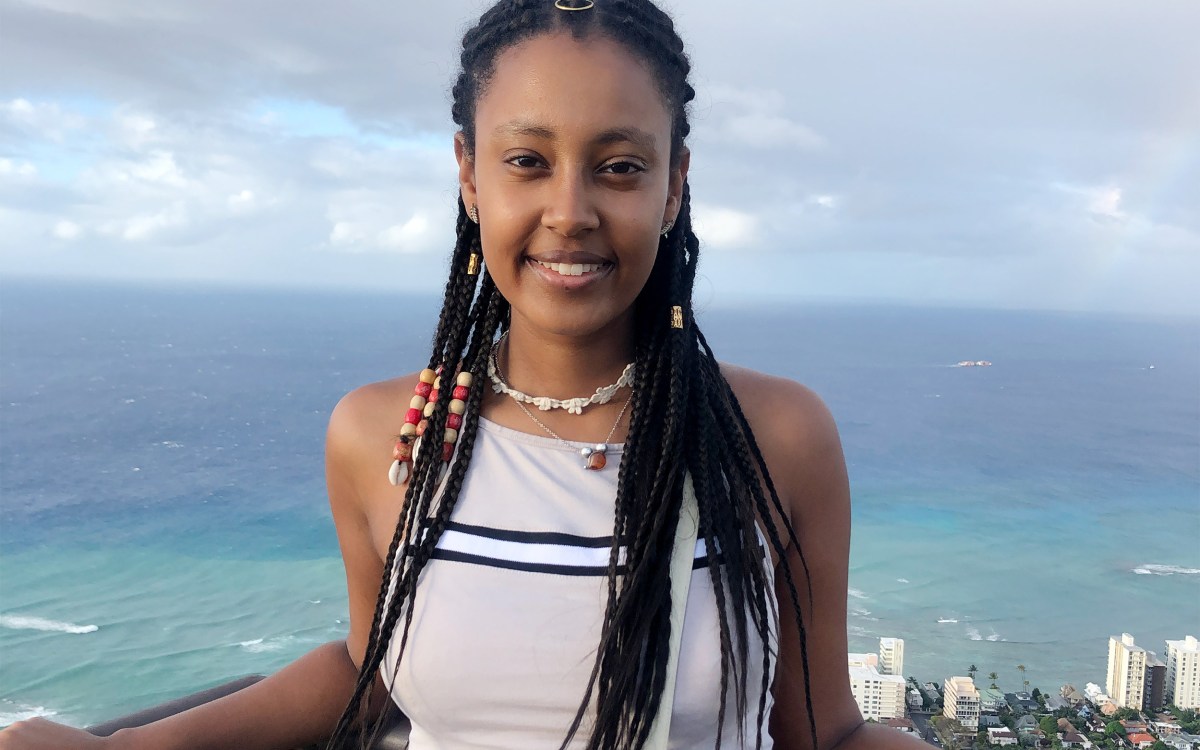
“Personalize Online Learning with LabXchange,” a virtual event for local teachers, was held in partnership with Massachusetts STEM Week.
Jeffrey Blackwell/Harvard University
LabXchange meets and beats challenges of remote learning
Free global platform for science education bridges ethnic and gender gaps
The LabXchange opened to virtual fanfare when it launched this past January, but the excitement was brief. The introduction of the program, created to help STEM teachers bridge ethnic and gender gaps as effectively as possibly, was quickly lost in the explosion of COVID-19.
But that doesn’t mean it went away. Despite the pressing pandemic and political news, the website has had more than 2 million users since its debut — and to its creators, it’s clear why.
The initiative, developed by Harvard University’s Faculty of Arts and Sciences, the Amgen Foundation, and Massachusetts teachers, is a free resource for students and educators to collaborate in an online community as well as use mentors to help address equity and access in science, technology, engineering, and mathematics (STEM). LabXchange is accessible from anywhere in the world, offers a library of diverse content, includes a biotechnology learning resource available in 12 different languages, and applies science to real-world issues.
Robert Lue, faculty director and principal investigator of LabXchange, identified the need for flexible online learning tools that educators and employers at all levels can control to create customized learning plans.
“LabXchange is especially pleased to have launched at a time when we could add our STEM resources and online class functionalities to the arsenal that instructors have to teach virtually during the pandemic,” he said.
Last week, in partnership with Massachusetts STEM Week, the initiative hosted “Personalize Online Learning with LabXchange,” a virtual event for local teachers. Participants learned how to use the platform as a tool that encourages exploration, adaptation, teamwork, experimentation, and creativity through critical thinking, problem-solving, and innovation. They also learned ways to help their students learn to build and sustain a global economy, and increase the roles of women and minorities.
LabXchange chief of staff Ilyana Sawka said the initiative is working to break down barriers and stereotypes in science and democratize participation in digital learning. The platform gives people an easy way to jump in and experiment, she said.
“There is room for improvement with diversity in the STEM sector, and we want to be part of the conversation about how we can improve outcomes for young people,” she said.
This year’s statewide educational theme, “See Yourself in STEM,” was stressed by webinar host Jessica Silverman, LabXchange content and collaborations manager; and participants David Mangus, Brockton High School science department head; Mary Liu, Weston High School biology teacher; Andrew Bowersox, Greenfield High School science teacher; and Alia Qatarneh, Massachusetts Amgen Biotech experience program director at Harvard University.
“The pandemic is changing how we do things. We are trying to create a new understanding and new definition of what it means to pursue science in a rapidly changing society.”
Ilyana Sawka, LabXchange chief of staff
During the event, Mangus, a former research scientist, demonstrated a molecular biology simulation using virtual lab components to mimic a robust in-person lab.
“This provides them low-stakes, low-impact environments where they can explore without having to worry about making mistakes or wasting resources,” he said.
Silverman works with scientists and artists to help create interchangeable modular content that stimulates interactive learning to meet specific learning objectives. Interesting graphics, text, and video help learners navigate challenging topics.
“It’s not just a linear track, we want to show what experiences are common to all students, and what pathways are available to students for their individual interests and at their own pace,” she said.
Sawka said LabXchange shares the Amgen Foundation’s mission of trying to ensure science is informed by a multitude of perspectives promoting success on a career path — whether in medicine, research, policy, communications, or biotech business development. “The pandemic is changing how we do things,” she said. “We are trying to create a new understanding and new definition of what it means to pursue science in a rapidly changing society.”
LabXchange has been working to support schools across Massachusetts as they transition to, and continue with, remote and hybrid learning. Over the past few months more than 16,000 educators and students have used the platform, for nearly 10,000 hours of teaching and learning. More than 90 Massachusetts schools and institutions, and more than 50 educator co-developers have collaborated on the platform thus far.
Massachusetts Secretary of Education James Peyser, who made opening remarks at the LabXchange event, said the pandemic has substantially impacted education and brought longstanding equity barriers into starker relief. He praised the positive developments that have come to light providing energy and momentum for educators and students, especially the trend toward digital simulations and other virtual learning experiences such as LabXchange.
“They are not just a substitute for traditional instruction, they can actually improve the depth of learning while breaking down barriers that may otherwise prevent students and teachers from getting access to the most effective learning experiences,” he said. “Especially in underserved communities and especially in STEM fields.”








